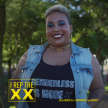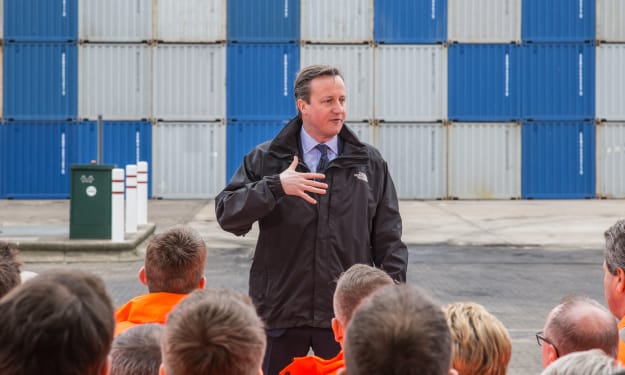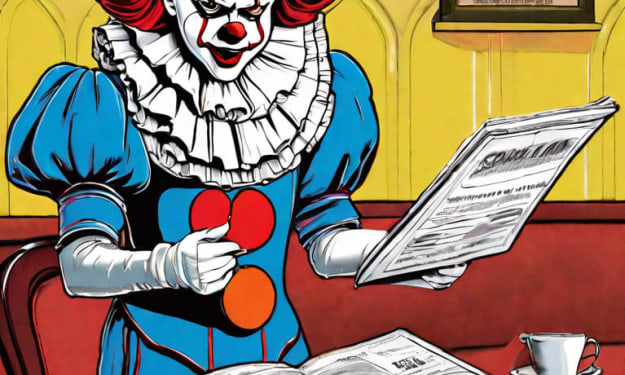Racist British Media Ruined Carnival
Hysteria fueled by racism became dangerous.

Notting Hill Carnival is the second biggest carnival in the world, after Rio de Janeiro. Given the almost polar opposite climate and demographic of the UK, I would say that’s quite impressive and really pays tribute to the amazing contributions of Caribbean people to British culture.
I hadn’t been to carnival in over ten years so my friends and I decided to check out the 2017 event in West London. However, anticipation for the event was nowhere near as fun as it was for my child-self. Back then, I dug out my Jamaican flag, got my hair braided, and stole some of my mum’s lipstick. This time, I bit my nails nervously as I reconsidered my attendance several times. By the time I was on the train I’d been told by ten news outlets, five relatives, and three friends that I probably shouldn’t go.
Understandably, European cities are on high alert after terrorist attacks that took place in Manchester and Barcelona. We’re always wondering where and when the next one is going to be and when you live in a big city, you almost feel like it’s inevitable. Shopping centres, public transport, and big events become places of fear rather than community. However, is the hysteria disproportionate to the danger? As much of the rhetoric around terrorism is fueled by racism, so too is the hysteria surrounding events organized by and for communities of colour. While on a much larger scale, the "War on Terror" (and support for it) and the panic that preceded Notting Hill Carnival exhibit similar British values of xenophobia and hostility.
In the lead up to the event, news outlets were rampant with updates about drugs busts and arrests that were purportedly related to the carnival. The police supposedly made 300 arrests in the lead up to the carnival. Like, so what? There are, on average, 66,445 crimes per month across London so the 300 hundred is neither significant nor proven to be connected to the carnival. Apparently, some Class A drugs were found in Lewisham — that’s almost an hour away by public transport. A Facebook friend of mine aptly commented, “this is embarrassing… where are similar headlines for drug busts for other big events like Glastonbury, Reading or Wireless [festivals]?" Another media outlet reported that thirty arrests were made on family day — again a rather unremarkable number given the event was attended by almost one quarter of the city’s population. They claimed that family day was “marred” by the presence of drugs and alcohol — what about when the lives of children and families are marred by systemic and institutionalized racism?
An interrogation into drug-use in America proves that white people do more drugs. Similarly in the U.K., studies have shown that black communities are disproportionately criminalized for drugs. I watched BBC’s six o’clock news every day for a week and each evening a segment was presented about how the carnival was expected to be ruined by drugs or acid attacks. Believe it or not, following the event, the media reported these predictions to be true, to continue the harmful narrative about drugs within the black community.
This media frenzy is all part of an on-going campaign to criminalize black communities. Again, this is similar to how the same outlets warp our sense of safety by depicting brown folks as terrorists. As I discussed in an article comparing Brexit to the election of Trump, these political manifestations of anti-immigrant sentiment validate latent racism lurking in the general population. Hate crimes have risen 100% since Brexit and will only get worse as the media continues to scapegoat immigrants, refugees, and people of colour.
I experienced the hysteria created by the media’s fear mongering first hand. My friends and I arrived at carnival on Monday afternoon. After walking around for some time, we headed down one of the crowded streets. Suddenly, a mob of people was running at full speed towards us, screaming and looking panicked. Not knowing what else to do, we turned and ran too, constantly looking back to see that was happening. About thirty minutes later the same thing happened again, this time with an even bigger crowd. People were pushed and crushed in the stampede; some fell onto the dirty, littered ground. No one knew why we were running and after looking for news stories of any attacks that day, I concluded it was a prank. But the fear that I saw in people’s eyes was very real — a combined feeling of panic and despair as we remembered all the newsreaders that told us we would probably die today.
I realised no one had told us what to do or how to stay safe, they had merely painted the anticipation of carnival with such a tarnished brush that the moment we felt fear, we all panicked. People in the crowd yelled "acid" or "ISIS" — I couldn’t tell which but either way it was certainly an outcome of the pandemonium instigated by the media. Police blocked every possible escape route, and we felt trapped. In the chaos, I saw people trying to run through the police barricades only to be blocked without sympathy for our escape. One young black man was running when a police officer grabbed the Jamaican flag he was wearing as a cape and yanked him back, causing him to collapse, choking. Police officers stood stoic — unflinching to the carnage but also completely unhelpful. We walked around for over an hour, trying to find at least one street that wasn’t blocked by blue hats and yellow vests. Not a single officer would help us, despite how we begged to be let out of the carnage, many of us on the verge of tears.
Finally, we found a way out and immediately took a taxi as far as possible; we daren’t go near the tube stations. I felt tingles all over my body and I began to think it was acid irritation. News reports claimed there had been an acid attack the evening before although as far as journalism goes the reports held no witness accounts or anything further than some people reporting mild irritation and fleeing crowds. What if the hysteria was causing people to experience physical pain? This is a well-documented phenomena which combined with the theory that experiencing racism can trigger post-traumatic stress symptoms within black communities is an alarming outcome of the media’s racist frenzy.
While living in Vancouver, one of my campaigns with Black Lives Matter Vancouver involved removing police presence from LGBTQ Pride parades. One salient argument for our cause was how events held by marginalized groups often draw disproportionate police measures (including a $350,000 CAD tank) while more mainstream events with similar numbers often attended by predominantly white participants seem to far less of a concern for law enforcement.
This was also astoundingly noticeably at Notting Hill Carnival. While over a million attendees probably did warrant high police presence, the behaviour of the police seemed nothing short of hostile, particularly towards black attendees. If the police were present for security measures – why didn’t they help us when our safety was imperilled? British police officers are held, perhaps even to me, to a higher regard because very few carry lethal weapons and many departments undergo some de-escalation training. However, as part of a state-run institution in a country that is arguably the worst perpetrator of colonialism, slavery, and the dehumanization of the black body, British police are still complicit in anti-blackness, even if they don’t shoot as many black people as America. Not only do Black Britons fear the police after witnessing fatal incidents in the United States, they are also more likely to be a victim of police violence right at home. Just like across the pond, black British people grow up in fear of law enforcement.
After this year’s carnival, the chief of the Metropolitan Police called for the carnival to be “banned.” This announcement came after several police officers were harmed by attendees in some of the weekend’s more chaotic moments. Notting Hill Carnival is a beacon of the diversity that Britain (sometimes) prides itself on. It is a bank holiday weekend full of all the most beautiful, rich, vibrant, and tasty things that have made their way via the Empire Windrush and many other treacherous journeys of immigration to England. My own half-Jamaican biases aside, the carnival is one of the biggest events in London’s calendar that if it were to be shut down would be nothing short of a travesty. Given the rampant global anti-blackness contributed to — or perhaps started by — Britain, it is not hard to assume that an undercurrent of racism lies within these comments. It’s at times like this when people yell “blue lives matter” — a strange tactic that supposes black people have the option of removing their skin colour just as an officer can remove their uniform (we’re super humans, not superhuman). With the job of policing comes the inevitability of danger – the same should not apply to being born black.
While some articles did share beautiful photos of the day or go into detail about the parade itself with positivity, many led with dramatic headlines about drugs or arrests. Many even glorified the "dancing policeman" far more than they highlighted the outfits or the dance moves of people who had put their life and soul in carnival preparation. Back in 2013, even Jeremy Clarkson had the insight to comment that being at Notting Hill felt like "being in Soviet Russia" as the event was dominated by police both on the ground and in the air.
Carnival was, as always, an incredible show of how black communities contribute to Britain and how immigration is the sole reason we are Great. To be surrounded by black joy, black love and black vibrancy was memorable. To hold in our hearts those lost in the tragic Grenfell tower fire was moving and meaningful. However, as one carnival band member commented with his artwork entitled “The Death of Carnival,” modern-day Britain is perhaps not ready for black excellence in the way it is becoming powerful.
About the Creator
Cicely Blain
queer, femme, writer, artist.






Comments
There are no comments for this story
Be the first to respond and start the conversation.